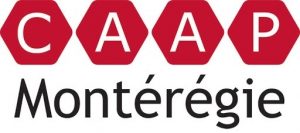Demystifying the rights of residential seniors
Rent-setting rates in 2024: unprecedented!
Published February 1, 2024 by Andrée Rochon. Journal Le Canada Français, page A-19.
Every year, the Rental Administration Tribunal (TAL) publishes rent adjustment rates. In 2024, the average basic adjustment estimate is 4% for rents without heat included and for rents where heat included is electricity, i.e. the vast majority of dwellings in Quebec. This is the biggest increase in recent years.
To establish these criteria, the Rental Administration Tribunal uses mainly the Consumer Price Index and, more recently, the Consumer Price Index for health care services established by Statistics Canada for certain expenses in private seniors’ residences (PSRs).
To determine the rent increase, TAL takes into account a number of factors, including variations in school and municipal tax costs, variations in landlord’s insurance premiums, electricity and fuel costs, maintenance costs, building-related service charges, administration costs and, in the case of an PSR, service charges related to personal services, as well as a few others.
The vast majority of 12-month leases are renewable from July 1 to June 30 of the following year, and the period allowed for price and other changes is between January 1 and March 31. In private residences for the elderly (PSRs), although still frequent during this period, renewals are spread out throughout the year, and deadlines for notices of increases and other modifications remain between three and six months before the end of the lease.
RIGHT OF REFUSAL
The renewal process is exactly the same in PSRs as in regular housing: a resident who receives a notice of lease modification / notice of rent increase that he or she considers abusive has the right to refuse this lease modification. The only action he must take is to send a written notice of his decision to the residence manager/owner within one month of receiving notice of the lease modification. He must keep proof of receipt of his reply. On the TAL website, a form entitled Réponse du locataire à l’avis d’augmentation de loyer et de modification d’une autre condition du bail is designed to facilitate this process.
It is then the responsibility of the residence manager/owner to attempt to negotiate with the tenant, or to apply to the TAL to set the rent, within one month of receiving the refusal. Should negotiations take place following the initial refusal, the resident is under no obligation to accept the agreement proposed by the owner. He may choose to rely on the TAL to set the rent.
Tenants have the right to refuse a rent increase while remaining in their dwelling, even if this choice is not included in the notice.
CAUTION
We have noticed that there are more and more “rent rebate” or “bonus” increases in RPAs and occasionally in regular housing. Be wary of this kind of proposal, as it is temporary and the harmful effects are felt twice over at the next renewal. This practice artificially inflates landlords’ profits, which is good for resale and can also be useful when the tenant leaves. This unit will be re-let on the basis of the increase in the lease rent, without the discount.
Tenants have the right to refuse a rent increase while remaining in their dwelling, even if this choice is not included in the notice. Some landlords neglect to inform tenants that they can refuse without having to move out. Several community organizations, housing committees and the TAL can provide tenants with information.
The Centre d’Assistance et d’Accompagnement aux Plaintes (CAAP) de la Montérégie is a community organization mandated to inform and assist seniors in PSRs who have questions related to their leases. For more information, contact CAAP Montérégie at 1 800 263-0670 or 450 347-0670.



